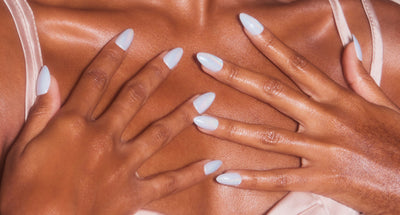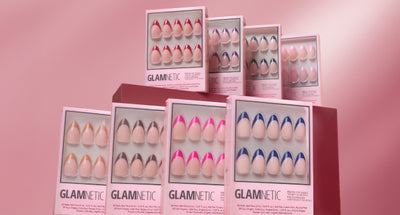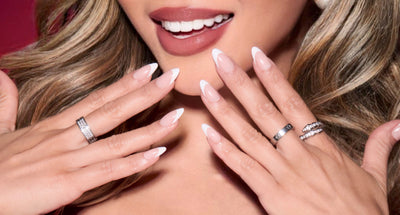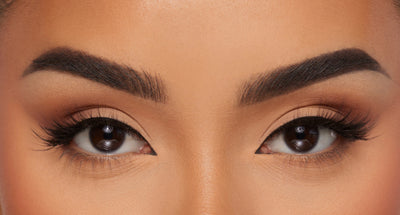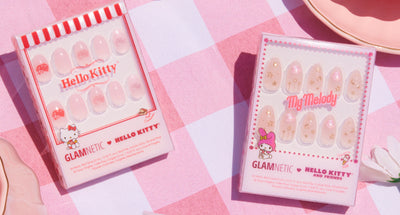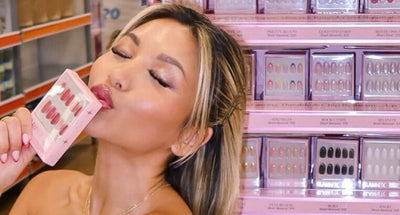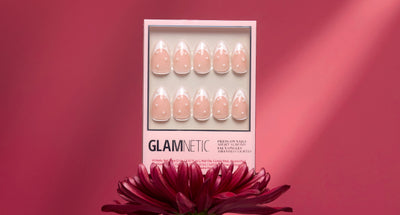Be Paraben Free: Why We Don’t Use Paraben In Our Products
You probably have tubes of lipstick, jars of lotion, or makeup palettes lying somewhere nearby as you read this. Those items are common, and we use them every day.
The things you buy are usually items that you have a specific need for—like that perfect shade of eyeshadow to match your outfit or the night cream you use on your face to keep your skin clear from breakouts.
Each cosmetic that you purchase has an ingredient label that lists a whole lot of stuff that’s in it. Most of these ingredients are difficult to pronounce, let alone know what they are. With a little research, you can find out exactly what is in those lotions and potions you love so much.
We are all aware of our diet and lifestyle choices. These days we are also becoming just as mindful of the ingredients we put on our skin.
Some cosmetics contain certain chemicals that have the ability to reach further into the skin and eventually enter the bloodstream. Although this type of absorption is not common, it can happen, and that’s why it’s important to understand the layers of the skin and ingredients of the products you put on it.
Many cosmetic companies claim that their products are paraben-free, but what exactly are parabens? Let’s take a look at what they are, where they can be found, and how they can be absorbed into the skin. Plus, we’ll chat about why we at Glamnetic choose not to include parabens in our products.
You Skin Mimics A Sponge
Your skin is the largest organ of your body. Along with protecting your internal organs from bacteria, dust, sunlight, and other outside elements, the skin also has the superpower to absorb vitamins and other stuff from your creams, cosmetics, and skincare products. This can be good and bad.
Most cosmetics are designed to lay on the surface of your skin where you put them. You simply pat the product onto your skin or glide it on with a brush and go.
These cosmetics do their thing quietly without any ulterior motives. Some product ingredients, however, can weasel their way deeper into the skin and cause some drama.
Similar to a sponge, these drama-causing ingredients can be absorbed by oil glands, sweat glands, or glands in the hair follicles.
Depending on what the product is being used for, you may or may not want these substances absorbed on a deeper level. Serums designed to repair collagen and elastin may need to be absorbed deeper into your skin in order to do their job effectively. Pigmented foundations, not so much.
The Three Layers
Your skin contains three layers:
- Epidermis—The outer, visible layer of the skin. This layer is where you drop your precious skin potions, serums, and foundations—the part of your skin that everybody sees. The epidermis contains your skin tone, pores, and acts as a waterproof barrier. The epidermis is constantly shedding dead skin cells and replacing them with new, healthy ones. Exfoliation, baby!
- Dermis—This layer is thicker than the epidermis and contains oil and sweat glands, hair follicles, blood vessels, and connective tissues. This layer contains collagen and elastin and offers support to the structure of the skin. It is located underneath the epidermis. Workout sweat? You can thank your dermis for that.
- Subcutaneous (Fat) Layer—The inner layer of the skin located underneath the dermis. This layer is the innermost layer of the skin. It contains the good fat and connective tissues that insulate your body and act as a shock absorber. This layer contains blood vessels and attaches the skin to the muscles and tissues underneath it. It does the heavy lifting without being seen.
So, what you put on your skin is kind of a big deal. The formulas in your cosmetics are important because the ingredients they contain have the potential to be absorbed into the skin. Let’s check out how this can happen.
What Are Parabens And How Does Your Skin Embrace Them
Parabens are chemical preservatives that are used in lots of cosmetics, sunscreen, lotions, body washes, foods, and beverages.
Parabens prevent the growth of bacteria and mold and allow a product to be used longer than it would be without the preservative. The parabens are often used in addition to other chemicals to add extra protection from the growth of microorganisms. That sounds like a good thing, right?
Well, some parabens used in personal care products are easily absorbed by your skin. So, if you are constantly using these types of products (makeup, body lotions, shampoo, etc.), you are constantly exposing your body to these chemicals. That adds up to a lot of paraben exposure over time.
Are Parabens The Bad Guy?
It is believed that parabens can have an unattractive impact on your health. The FDA currently doesn’t have regulations on the use of parabens in cosmetics, so preservatives in cosmetics are treated equally as the other ingredients.
The FD&C Act says that other than color additives, cosmetics, and their ingredients do not need FDA approval before hitting the store shelves.
In some experimental studies, parabens have been shown to cause hormonal imbalance in females and males. Over time and lots of exposure, this could cause toxicity which could lead to serious illness.
The FDA is continuing to evaluate and review studies on paraben safety, risks, and hazards.
The Break Down
If you are apprehensive about paraben content in your makeup or personal care items, don’t stress. There are many beauty brands in the industry today that have stopped the use of parabens in their products.
Many cosmetic brands now label themselves as paraben-free, latex-free, cruelty-free, and organic. There are many other label types that you’ve probably seen advertised too.
Since the verdict is still out as to whether or not parabens can be harmful to your health in the long run, why not just play it safe and not use products that contain them at all?
At Glamnetic, we have chosen to take the guesswork out for you by eliminating parabens from our product. This will give you some peace of mind every time you flaunt your magnetic liner and lashes.
Glamnetic magnetic eyeliner is paraben-free and latex-free. Flaunt those lashes with not a care in the world because there’s nothing more confidence-inducing than natural beauty.
Sources:
Skin Information: Layers of Skin, Keeping Skin Healthy, and More | WebMD
The skin is the body's largest organ | NCBI
Collagen Hydrolysates for Skin Protection: Oral Administration and Topical Formulation | NCBI
Structure & Function of Your Skin | AOCD
Human skin - Sweat glands | Britannica
Subcutaneous Tissue Is the Innermost Layer of Skin | Very Well Health
Parabens Factsheet | National Biomonitoring Program | CDC
What Are Parabens, and Why Don’t They Belong in Cosmetics?
Women, Health, and Environment - Powerful voices for systemic change
FAQ: Parabens and Breast Cancer


